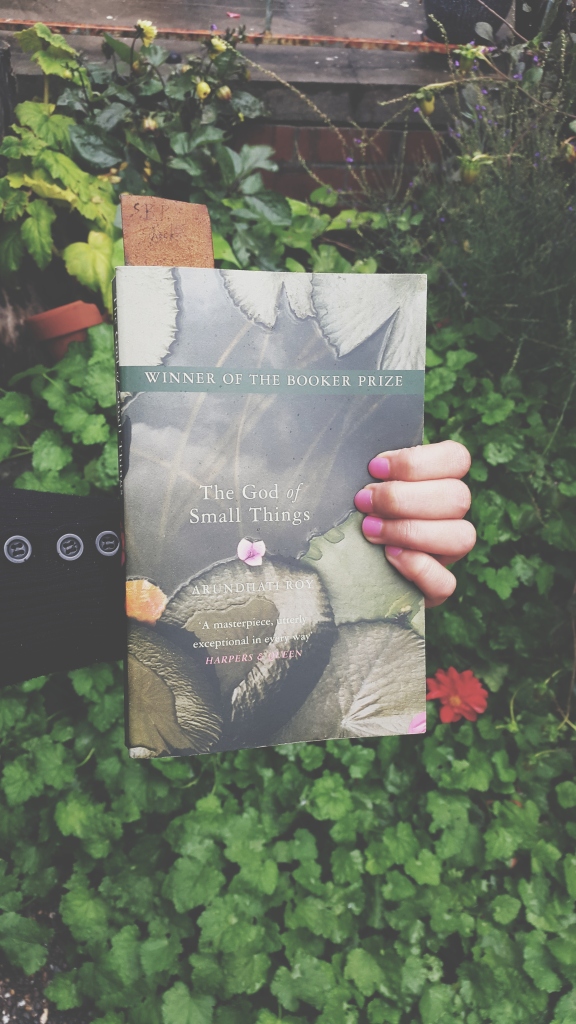This book just brought me out of the reading slump. One thing’s for sure though. I shouldn’t have attempted to read this as a 14 year old, all those years ago.
Summary
I find it really difficult to summarise the plot. After much thought, I have decided that this is the story of how things can change in a day, for the rest of your life. The story is set in South India – specifically, in the village of Aymenem in the Kottayam district of the state of Kerala. The main characters are twins Estha (short of Esthappen) and his sister Rahel. Their long-sufferring divorced mother belongs to a previously influential Syrian Catholic family made up of a series of interesting characters, living and dead, all with their character flaws, all with their secrets. In the present day, the family home – “The Aymenem House” – is in a state of decay, as well as the twins’ grandmother, Mammachi’s pickles and preserves factory. Estha and Rahel have both returned to the house, decades after the events in their childhood that changed everything – Estha a reculse, and Rahel wandering far and wide, but with no direction. This is the story of how things ended up here.
Review
The God of Small Things is many things. It’s the story of fraternal twins (“two-egg twins”) Estha and Rahel. It’s the story of childhood innocence and the absurdity of adulthood. And if you pay attention, it’s also the story of the environmental and cultural cost of ‘progress’. But ultimately, it’s the story of the “Love Laws” which dictate “who should be loved, and how. And how much”.
This is Arundhathi Roy’s debut novel and 1998 Man Booker Prize winner. The prose is beautifully crafted, almost poetic, with the story weaving in and out of the past and the present effortlessly. There are some sentences that are repeated over and over again throughout the book, and this simply aids in driving the reader’s focus to the main themes rather than being tiresome.
Once you finish reading the book, if you step back and think about it, the story isn’t extraordinary – a series of unfortunate events, but not extraordinary. But it’s Roy’s masterful storytelling that kept me hooked till the end – allowing us to uncover just the right amount of information at the right time.
And then there is the spoken language – of the young twins, where they tend to make up their own versions of words (much like when you make up words for song lyrics you don’t know) and I found this to be a wonderfully relatable insight to how their minds work. And the spoken language of other characters with one word creeping into the next, which I believe is an attempt to portray the local accent or dialect.
Some aspects of this book can be hard to stomach, however from a purely literary perspective, the author uses rather clever analogies to describe situations and things which are sometimes grotesque, sometimes mundane. These were a joy to read.
Arundhathi Roy in real life is a very vocal activist and advocate. So it is no surprise that heavy-hitting cultural and social events and issues feature in this debut novel. The Communist uprising of Kerala, caste discrimination, pollution (the Meenachal river plays a huge part in the story) and loss of cultural heritage, all feature, all leading up to “how things changed in a day” or leading from the day things changed. An entire chapter – Kochu Thomban – is dedicated to the dying race of the Kathakali Man, which I found was a real gem.
I understand why this was a Booker Prize winner. It was a very clever piece of writing indeed.


Loved this book so much. Thanks so much for sharing the wonderful review! If you’re ever interested in some other awesome book reviews and musings, be sure to follow! Thanks!
LikeLike
Thank you, that’s very kind! 🙂
LikeLiked by 1 person